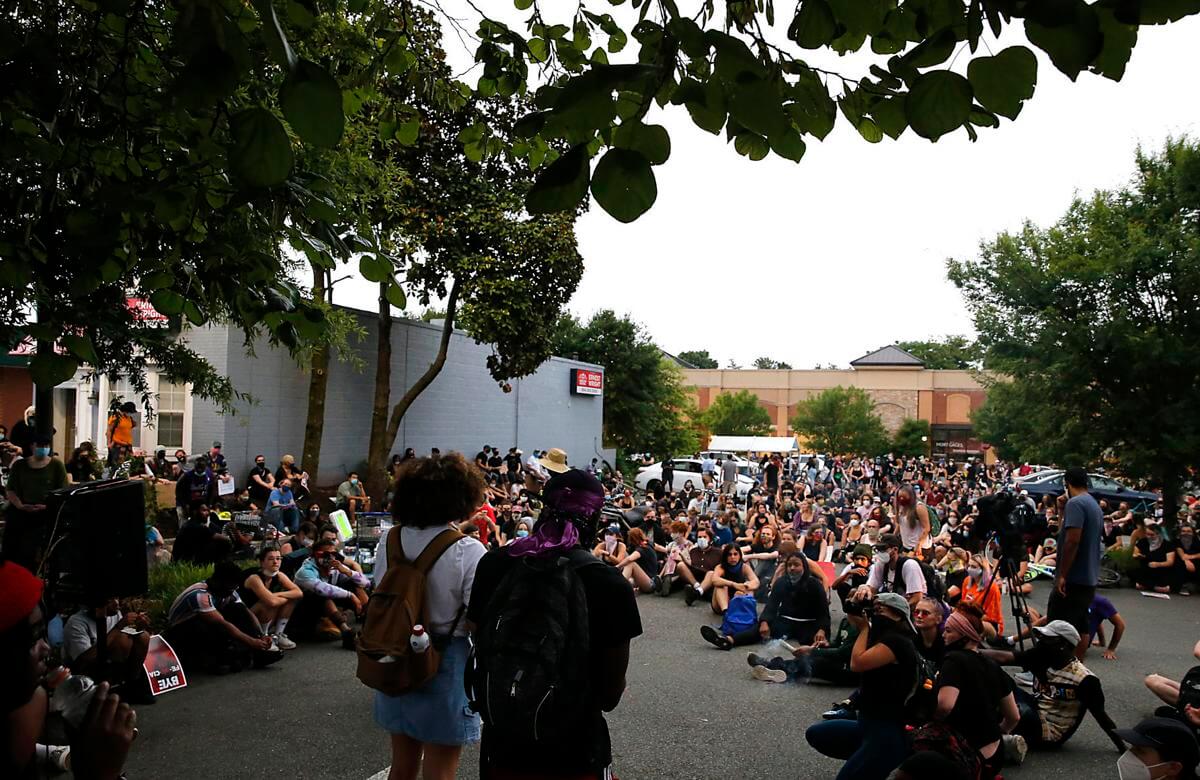
As Omari Al-Qadaffi, a local organizer, spoke to more than 100 people Thursday evening in Richmond, he implored that it’s not simply that “black lives matter.” It’s that the “quality of black lives” matters, too.
That was the theme of the gathering in a parking lot near the Kroger on West Cary Street.
Michaela Hatton, a local organizer and recent graduate of Virginia Commonwealth University, organized the protest, which came on the 14th day of demonstrations in Richmond.
First sparked by the killing of George Floyd in Minneapolis , protests nationwide and in Richmond have pivoted toward different inequities underlying structural racism in the United States.
Protesters in Richmond have toppled statues of Christopher Columbus and Jefferson Davis.
Thursday’s focus: gentrification and evictions.
Gentrification occurs as development drives up a neighborhood’s housing costs, often displacing longtime residents while altering a neighborhood’s historic racial or ethnic character.
Hatton’s goal with Thursday’s protest was to not focus just on police brutality — their fight is against more than that, she said.
“Housing discrimination and gentrification in the city is a big, big issue that I don’t think many people talk about or know about,” Hatton said.
Richmond is among the most gentrified cities in the state, according to a 2019 report from the National Community Reinvestment Coalition. The report — which used census tract data to measure socioeconomic changes — found that, in four Richmond census tracts, the black population fell 40% from 1990 to 2010. In that same period, the white population increased 30%.
According to data from the Partnership for Housing Affordability, released early this year, median rent prices in the Richmond region rose by an average of 20% in the past decade.
Also, in 2016, according to a Princeton University Eviction Lab report published in The New York Times, Richmond had the second-highest eviction rate in the country, behind just North Charleston, S.C.
“We’d never want to limit the discussion of abuse, oppression, and racism to just the sensationalized physical deaths that we see on TV,” said Al-Qadaffi, a housing organizer for the Legal Aid Justice Center. “We want to keep in mind the financial and social deaths that black people are disproportionately subjected to.”
Some of the issues have been exacerbated by the ongoing coronavirus pandemic. A statewide moratorium on evictions went into effect Monday and is scheduled to last through June 28.
Among the policies Al-Qadaffi called for were the cancellation of rent and a continuation of the moratorium on evictions until the pandemic is over.
“What good is it to defend a life if we turn a blind eye to that life that is trapped in misery and hopelessness in the city of Richmond?” Al-Qadaffi asked.
Al-Qadaffi was one of three speakers in addition to Hatton who spoke to the crowd for about 30 minutes Thursday, as heavy rain began toward the end.
“Justice doesn’t stop for a little rain,” Hatton said.
The group planned to march to the Windsor Farms neighborhood and end at the Rumors of War statue at the Virginia Museum of Fine Arts.
Another of Thursday’s speakers, Allan-Charles Chipman, a City Council candidate in the 6th District, told the group that they not only must tear down the monuments. They must tear down mindsets, too, he said.
The state of housing in the city is not an issue that has yet received as much attention, but Thursday’s protest was meant to change that.
